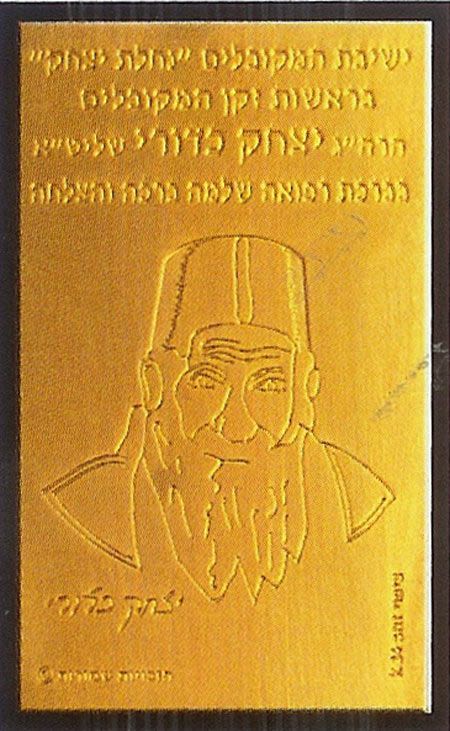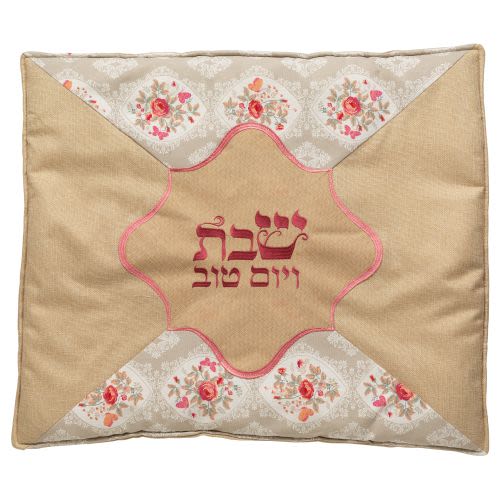
The Emuna Garden
Rabbi Nachman teaches that before one starts to do hitbodedut and to make a real accounting of his actions, he thinks that there’s nothing much to fix.

Last week, I shared some of the lessons I learned from planting trees in my garden. This week, I want to share some of the things I learned when trying to dig all the weeds out.
When our house was built 10 years ago, the owners were offered a job in another community, and decided to rent it out for two years. The two years turned into 10, which is when they finally decided to sell it – to us. For ten years, the garden had minimal, if any, attention.
When we moved in, it was still shmitta year, so there was nothing to do except walk around the garden, and marvel at the size of the weeds. Many of them were so big, they were actually ‘weed trees’. I would look at my garden, and wonder how on earth I was ever going to clear it of all the rubbish, let alone plant something new.
After Rosh Hashana last year, my husband and my dad spent a couple of days hacking down as many of the weeds as they could. We had a bonfire three days in a row. Then, last February, Hashem sent me a big, strapping teenage boy, who valiantly chopped down vines as big as his arm; dug up roots as big as his leg, and did a good job of getting rid of most of the visible weeds.
Last year, it barely rained until March – we got most of our rainfall in two or three short weeks. When it rained, I suddenly discovered that all of the weeds I’d thought I’d already got rid of were still lurking beneath the surface of the ground; one good drenching, and the garden was once again full of weeds.
So after Pesach, I spent months and months digging these weeds out of my garden by hand. As I dug, I thought of Rabbi Nachman’s lesson about the big pot of water. In that lesson, Rabbi Nachman teaches that before one starts to do hitbodedut, and to make a real accounting of his actions, he can think that there’s nothing much to fix.
Rabbi Nachman compares this to a big pot of water that at first glance appears to be pure. But then, when you put a fire under that pot and it begins to boil (the fire referring to trials and tribulations) – that’s when all the impurities start to bubble up to the surface. Rabbi Nachman tells us that at this time, we should stand by the pot with a big ‘hitbodedut’ spoon and scoop all of these impurities out.
Only at the end of this process, can we be sure that the water is really ‘pure’.

My garden has been an ‘emuna garden’ in so many ways. As I was digging the weeds out, I pondered on how I thought I’d ‘cleared’ so many of my own bad habits and wrong ideas out of the way.
What I’d done was simply chop off the obvious, visibly ugly bits; I hadn’t realised that they were still firmly rooted, ready to pop up somewhere else as soon as they had the right circumstances.
My garden taught me that unless you do the hard work of digging the bad habit or middot out by its root – and sometimes, I spent days working on one weed – you never really got rid of it. It would bide it’s time, it would re-grow, and it would simply pop up somewhere else.
Something else that I learnt: often, I would struggle and struggle to pull out one weed, and it simply wouldn’t budge. After a few days of making no headway, sometimes, I’d start working on a neighbouring weed and more often than not, I would find that its root was entangled with the first one, ‘anchoring’ it down to the ground. Once I dug the second root out, I could also remove the first one.
How many times do we try to work on one middot, and it just doesn’t seem to be getting anywhere? I had that experience myself: for weeks and weeks, I was trying to work on my ahavat yisrael, and it simply wasn’t moving. So instead, I started praying for more humility and hey presto, when I started ‘digging up’ my pride, a whole bunch of associated ‘weeds’ came with it.
I also learnt how roots spread all over the place. I thought the main cluster of weeds was in area A, but when I started to dig them out by their roots, I would often have to follow them back a good few feet, until I found where they were really coming from in Area B.
So, too, with our bad middot. We may think that we are yelling at our kids because we have a problem with anger. But when we follow it back through all the mud and filth clouding the issue, we see that really, the problem is rooted in our arrogance: how badly it reflects on me that my child isn’t perfect! How bad I feel, that I can’t ‘fix’ their problem! How powerless I feel!
The last thing that I learnt is the importance of constant vigilance, when it comes to preventing a new crop of weeds from taking over the garden. This year, Thank G-d it’s been raining quite regularly, and the ground was again covered with many weird and wonderful green-leaved little visitors. I came out and looked at them every day, to see what was going to develop into something beautiful that I’d want to keep, and what was just going to be a plain, ugly weed that I needed to get rid of.
When we had a week of sun, it took me a good morning of digging-hitbodedut to get rid of pretty much all the weeds. I dug for four and a half hours, and while I dug, I talked to Hashem about a few big ‘weeds’ in my own neshama, that I need His help to remove.
If my garden was a new, fresh, clean garden, it would have been so much easier to plant beautiful things from scratch, and to pull the weeds out while they were still small and easy to get at. But it wasn’t. My garden was like so many of our souls – older, neglected and full of things that were choking it, and preventing it from being a beautiful paradise.
Gardens like this are a lot more work. But with a lot of prayer and perseverance, they, too, can become genuinely beautiful, and in quite a unique way. One last observation: my garden is built on a mountain, so in many places, the bedrock is only a couple of centimetres under some very iffy soil.
It’s very hard to find a good place to plant trees and shrubs with bigger roots in a garden like this – but the weeds actually helped me. They’d done the work of expanding into whatever space was available, and once I’d dug them out, I usually had a nice big hole for something else to go into.
So, too, with our neshamas. Once we dig out pride, anger, depression and all the rest of our spiritual ‘weeds’, we’ll be left with a whole lot of empty space. And that’s when Hashem comes along, and fills those spots with some incomparably beautiful spiritual blooms.











Tell us what you think!
Thank you for your comment!
It will be published after approval by the Editor.